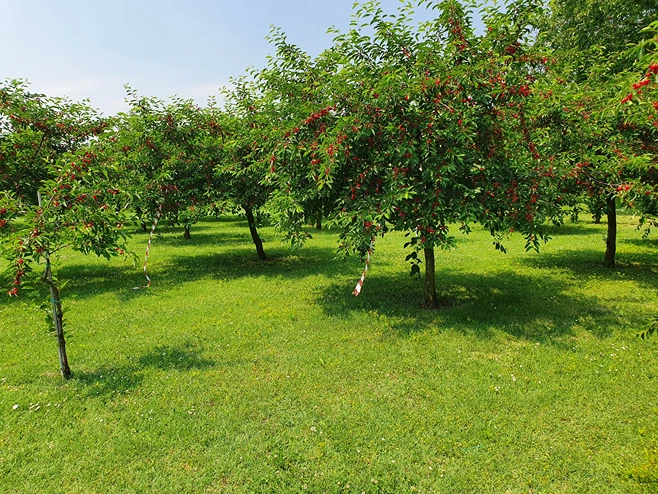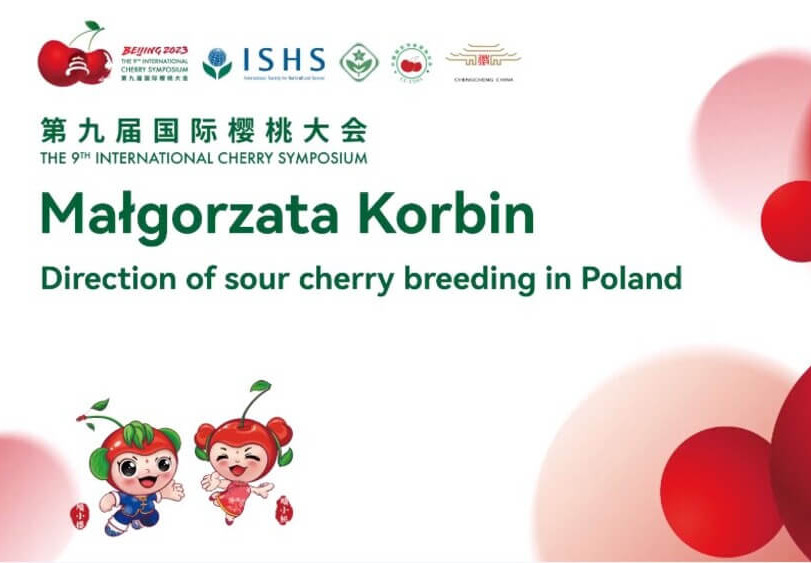Sour cherries (Prunus cerasus L.), belonging to the Rosaceae family, are known not only for their unique taste but also for their health-promoting properties. A recent study analyzed four sour cherry cultivars, two dark-fleshed varieties, "Heimann R" and "Gorsemska," and two light-fleshed ones, "Montmorency" and "V70142", to determine differences in metabolite composition and antioxidant activity.
Using the untargeted metabolomics approach (UPLC-TOF-MS), 473 metabolites were identified, including organic acids, phenols, flavonoids, anthocyanins, amino acids, and sugars.
Dark-fleshed cherries exhibited a higher content of bioactive metabolites compared to light-fleshed ones. Among the identified compounds, seven biomarkers: Allysine, Biochanin A, hydroxybutyric acid, acetylacrylic acid, 2,4-hexadienedial, indole, and chlorogenic acid, were found to play a particularly important role in antioxidant activity.
Tests revealed that dark-fleshed cultivars demonstrated antioxidant activity up to twice as high as light-fleshed. This result is attributed to their elevated levels of anthocyanins and total phenols, which counteract free radicals and help combat oxidative stress.

The diversity of metabolites was analyzed using Principal Component Analysis (PCA), which showed that the chemical composition of sour cherries largely depends on the genetic makeup of the cultivars. For example, iditol was identified as the predominant metabolite in "Heimann R," while malic acid was more abundant in "Gorsemska." These differences not only contribute to the unique nutritional profile of each cultivar but also influence their functional properties.
Additionally, the study showed that sour cherries are rich in organic acids, polyphenols, and flavonoids, which are well-known for their therapeutic properties. These include the ability to reduce inflammation, protect the cardiovascular system, and mitigate risks associated with chronic diseases such as diabetes and cancer. Compounds like chlorogenic acid and Biochanin A, in particular, are valuable not only as nutritional supplements but also as key ingredients in the pharmaceutical and food industries.
The nutritional value of sour cherries makes them particularly appealing for the development of functional foods and nutraceuticals. Their high concentration of bioactive compounds, especially in dark-fleshed cultivars, positions them as an ideal option for creating innovative products that promote health and well-being. For instance, they could be used to produce juices, concentrated extracts, or powders for use as dietary supplements.

Beyond their nutritional aspects, the findings from this study could prove useful for improving breeding programs aimed at developing new cultivars with higher levels of beneficial metabolites, thereby further enhancing the nutritional and economic value of sour cherries.
In conclusion, the study identified 473 metabolites, highlighting the significant value of sour cherries and their potential as a functional food. It also demonstrated that dark-fleshed cultivars are especially rich in beneficial bioactive metabolites. These results offer advantages not only for the consumers but also for the entire production chain of this species.
Source: Kaur, P., Darwish, A. G., El-Sharkawy, I., Singh, A., & Subramanian, J. (2024). Comparative Antioxidant Activity and Untargeted Metabolomic Analyses of Sour Cherry Cultivars Based on Ultra-Performance–Time of Flight–Mass Spectrometry. Plants, 13(11), 1511. PRE-PRINT 10.20944/preprints202402.1706.v1.
Images: SL Fruit Service
Andrea Giovannini
University of Bologna (IT)
Cherry Times - All rights reserved












